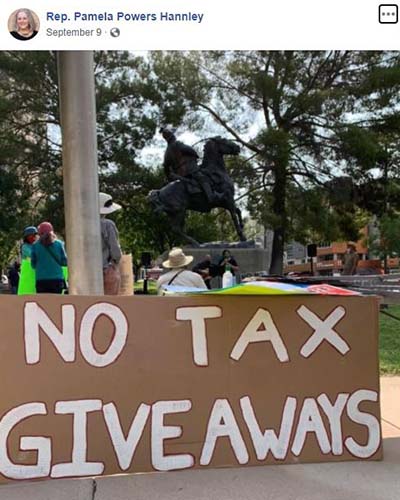
Across the political spectrum, opposition to GPLETs is strong. Opposition stems from the inherent inequity in doling out tax incentives to one group or another thereby picking “winners” and “losers” in the marketplace.

From progressive Arizona State Rep. Pam Powers Hannley to Scot Mussi, President of the Arizona Free Enterprise Club, many believe GPLETS are doing more harm than good.
“It’s the wrong way to do tax policy. If there’s an issue with high property taxes, then you should look to reduce the tax burden on everyone, not just the one’s lucky enough to qualify for a GPLET. These are people who were going to build anyway. Phoenix likes handing out GPLETS because it’s not going to Scottsdale,” Mussi said.
The abatement can last up to 25 years and while the city council picks winners and losers in the tax code by rewarding politically connected businesses, the cost is shifted to neighboring communities because their property taxes go up. It is a levy from the area, so somebody else has to pay for it.
The difference in revenue due to the abatement is made up by all the other properties in that area. They are voted on by the city council and are generally commercial developments downtown under the guise of economic revitalization.
To qualify for a GPLET, a business must demonstrate that the value being provided is going to be more than what is being collected. The parameters are fairly loose and while businesses are resisting, “some of the businesses have stood down because they don’t want to pick a fight with their democrat friends,” explained Mussi.
Mussi doesn’t see any benefit to the communities through the taxing scheme because it erodes the top property tax base and slows growth by holding the rest of the area back. Mussi believes the city councils do it to steer economic development away from other cities. Rather than it happening through the free market process where politicos don’t have any control, Mussi thinks the council likes the idea of directly impacting their city, so they hand out tax incentives and they get to control it instead of letting it happen organically.
“The new guy gets a special deal, but the guy who’s been there 30 years pays more,” Mussi said.
John Riches is the Director of National Litigation at the Goldwater Institute and he sees it hurting anyone located in an area where GPLETS are available.
He sees GLETs being awarded to big businesses that are able to hire attorneys and consultants who know how the process works. Well-connected and well-resourced businesses are much more likely to get a GPLET than a small mom and pop shop.
“I think they should be eliminated because those resources should be used for public purposes. They’ve been giving them away like they’re going out of style,” Riches concluded.

